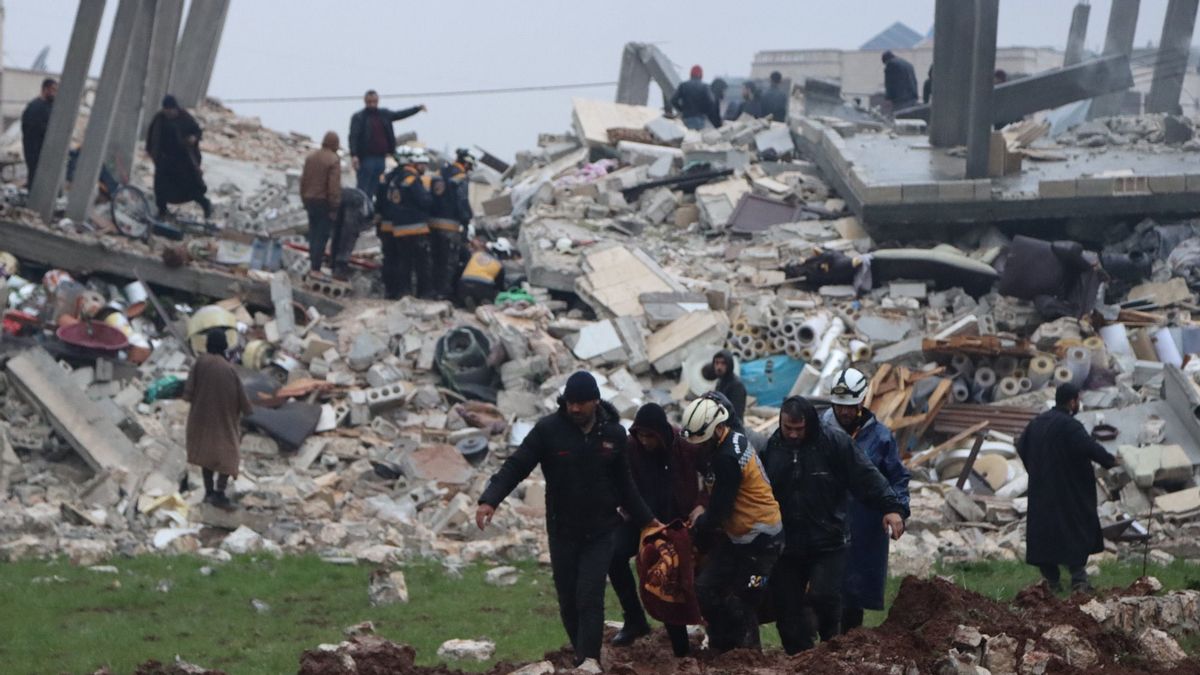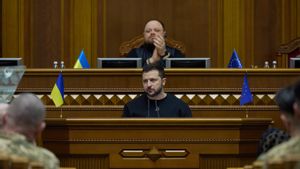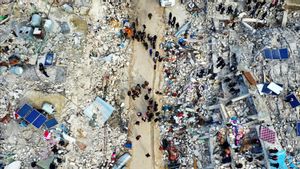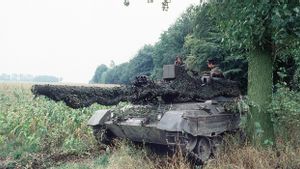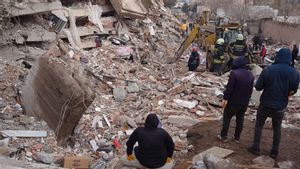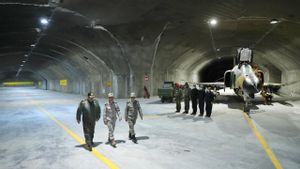JAKARTA - The only emergency response organization operating in northwestern Syria the White Helmets said on Tuesday they had not received any support from international rescue teams, nearly 48 hours after an earthquake struck the region and killed thousands of people.
"As far as I know, we have not received international support," Oubadah Alwan, media coordinator at the White Helmets, told The National News as quoted on February 8.
"What happened is beyond the capacity of any one organization or local entity or local NGO. The situation is very bad and very grim on the ground at the moment," he said.
UN officials on Tuesday said there were "logistical problems" impeding access to northwestern Syria, due to the extensive damage caused by the earthquake and damaged roads.
Another reason for the absence of an international rescue team is that the area bombarded by the Syrian government is also an active war zone.
"It is difficult to send first responders to a place that is constantly being bombarded by the Syrian regime and Russian forces," said Alwan.

It is known that the northwestern Syrian region is outside the control of the Syrian Government after more than a decade of war.
It is divided between Turkish-controlled land and by Hayat Tahrir Al Sham, an umbrella group of militias with ties to Al Qaeda.
Help can only come through one border crossing from Turkey, whose roads have been damaged.
White Helmets, a Western-backed NGO operating with around 3,000 volunteers for a population of four million, was unable to send thousands of injured people to Turkey, Alwan said.
Yesterday, White Helmets Director Raed Al Saleh met with USAID administrator Samantha Power to discuss deploying the agency in northwestern Syria, but so far no concrete announcement has been made.
Separately, Britain's Development Secretary Andrew Mitchell said on Tuesday organizing aid to "unarmed spaces" in wartime Syria was "an additional problem at a desperate time".
The dearth of international rescue efforts in northwestern Syria stands in stark contrast to the situation in Turkey, which has declared a state of emergency in 10 provinces.
The European Union has so far mobilized 1,186 rescue and 79 search dogs for Turkey. They come from 19 EU countries and non-member countries Albania and Montenegro.
The EU rescue mission is part of its civil protection network, which includes Turkey. Turkish authorities made a request for help after the quake.
But, so far no one has asked the European Union to help Syria, according to the European Commission.
The EU website indicates that UN agencies and related international organizations, including the International Federation of the Red Cross and the International Rescue Committee, can all submit requests for emergency humanitarian assistance.
A UN representative earlier said "technically, it was the Syrian government that made the request, not the UN". The National News is awaiting further clarification from the UN, IRC and IFRC at the time of publication.

Countries can send aid bilaterally, but the EU encourages them to coordinate their mechanisms to avoid overlapping.
Even though there are sanctions from the European Union and the United States, the provision of humanitarian assistance in government areas should not be hindered, because there are exceptions.
Syrian Foreign Minister Faisal Mekdad on Tuesday told Lebanese Al Mayadeen TV he had asked European countries to send aid after the earthquake, saying that sanctions were not an excuse not to do so.
Rescuers have only days to find people still alive under the rubble. Freezing winter weather made matters worse.
Jens Laerke, spokesman for the UN Office for the Coordination of Humanitarian Affairs, told a briefing on Tuesday that rescue teams had "about seven days" to find people alive.
SEE ALSO:
Separately, the head of the IFRC delegation for Syria, Mads Brinch Hansen said, in government-controlled areas in Syria that were affected by the earthquake, the government, civil defense and health services were "overwhelmed."
"Search and rescue efforts have been hampered by a lack of heavy equipment to move the bricks," said Hansen.
"The authorities do not have enough machines and machines to rent from the private sector," he stressed.
The English, Chinese, Japanese, Arabic, and French versions are automatically generated by the AI. So there may still be inaccuracies in translating, please always see Indonesian as our main language. (system supported by DigitalSiber.id)
